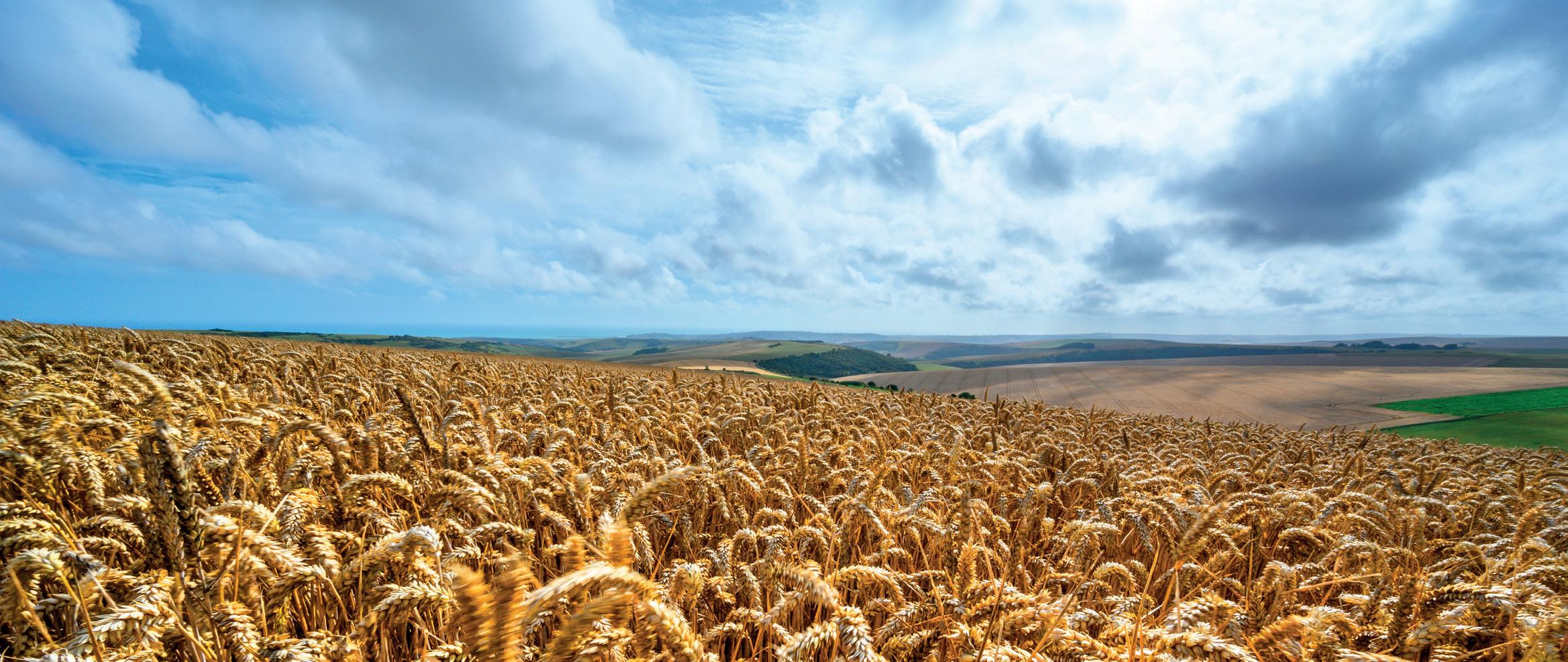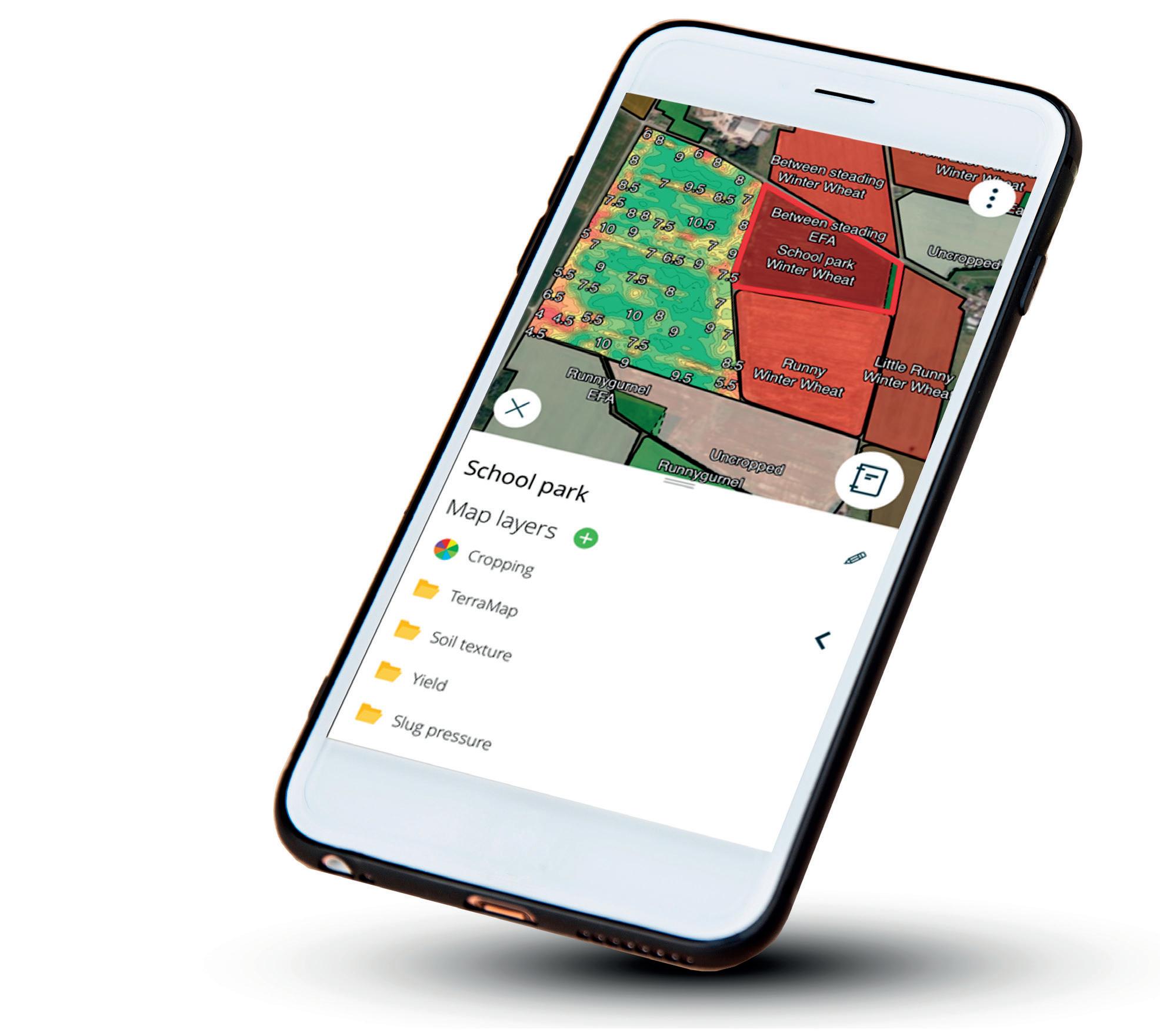
5 minute read
Cow cuddling is the new goat yoga
STEPHEN CARR
Arable farmer
Any arable farmer could be forgiven for feeling giddy with excitement when spot ex-farm milling wheat is trading at 216p/tonne and oilseed rape at 430p/tonne. If current crop prices do continue into the 2021 marketing season and beyond, it would certainly ease any anxieties arable farmers currently have about the fi nancial impact of the proposed gradual withdrawal of the BPS over the next six years. But are such hopes realistic?
Most EU member state governments are unapologetic about their determination to ensure that domestic food production is kept at high levels. This often involves imposing tariff s to keep cheap imports at bay, and undoubtedly these measures are central to the Common Agricultural Policy.
Post-Brexit, those certainties are gone for British farmers, with food trade policy now decided in a volatile Westminster, where a change of governing party or even a change of Trade or DEFRA Secretary could quickly cause a radical change in UK food trade policy.
Many Conservatives, including many cabinet members and the prime minister, like to talk about ‘Global Britain’ now that Britain is free of the EU. But there are obvious dangers in a ‘Global Britain’


WILL HISTORY
REPEAT ITSELF?
for UK farmers.
The last time British farmers were exposed to global competition in food trade was in 1921, when Lloyd George repealed the ‘Corn Production Act’.
The Act had been introduced four years earlier to boost domestic grain production during the middle of the First World War, as German submarines were threatening British shipping. But with the war over, cheap North American wheat could be freely imported. Lloyd George therefore abandoned previous promises to farmers that he would give them at least four years’ notice of any repeal of the Corn Production Act. Lloyd George’s ‘great betrayal’, as it was called at the time, quickly plunged arable farmers into a crisis as grain prices plummeted.
My own father was eight years old at the time the Act was repealed, and as he grew up as an impressionable teenager on a farm near Lewes in East Sussex through the 1920s, he observed the alarming consequences of Lloyd George’s about face.
The slump in grain prices brought about a collapse in land values, which in turn prompted the banks to withdraw their support as farmers’ collateral evaporated. Insolvency and foreclosure stalked many. Indeed some were so quickly drained of cash by trading losses that they could not fi nd the money to convert their farms to livestock production.
Entire holdings were abandoned and this contributed to a crisis in domestic food production during the Second World War. So great was the problem that my father spent much of his farming career in the 1950s clearing scrub from land left to go derelict 30 years earlier.
Let’s hope that 100 years later, Boris Johnson does not engage in his own ‘great betrayal’ of British agriculture, now that Brexit has given him the opportunity to do so, if he is so minded.
Whatever he does, like the arable farmers of the 1920s, all we can do is plough (or min-till) on regardless. But, if we do learn in the coming months or years that ‘Global Britain’ has decided to allow cheap food imports with ruinous consequences for farmers, we shouldn’t be too surprised. After all, it would only be history repeating itself.
AGRICULTURAL SERVICESAGRICULTURAL | GROUNDS MAINTENANCE | EARTHWORKS

C O M P O S T
01344 891 983 shorts-agricultural.co.uk




APP TAKES CROP WALKING TO NEW LEVEL
A new version of the Omnia Scout app has been launched to make it easier for growers and agronomists to share crop walking information and update field records remotely, explains Hutchinsons digital farming manager Lewis McKerrow.
The iOS app is a complete rebuild of the original Omnia Field Scout app that allows growers to view the various layers of data stored within their Omnia account from an iPhone or iPad and also update field records with notes, pictures, operational inputs or other information.
Providing there is a data or Wifi connection, the app will automatically sync with the associated Omnia account as soon as information is added, giving instant access to field notes and observations.
It also features an offline function whereby crop records can be downloaded before going into an area with limited or no data connection, with any changes synced as soon as a connection is available.
The Omnia Scout app provides a more professional, standardised way of making, recording and sharing crop notes from the field. It is especially important in this Covid-19 world, where agronomists and farmers aren’t necessarily able to meet face-to-face, so it should help strengthen these relationships.
With increasing scrutiny of all crop inputs, particularly insecticides, the app also provides a digital record to help demonstrate the rationale behind input decisions and potentially allow more targeted treatment of crops.
Location markers can be tagged to any notes or pictures manually or by using the phone’s GPS, allowing that area to be revisited and monitored over time and targeted management plans to be developed in Omnia if required.
Likewise, users can analyse data, such as satellite biomass imagery or yield maps, in Omnia and highlight specific areas for further investigation and “ground-truthing”.
Field information can be accessed and edited in a variety of ways through the app, such as by viewing all diary notes for a particular field, fields, variety or crop type. If, for example, you find yellow rust present in one variety, the app allows this to be added as a note to all fields affected.
The Omnia Field Scout app is available for iPhone and iPad from the app store.
LEWIS MCKERROW
Hutchinsons
T: 07522 945318 E: lewis.mckerrow@hlhltd.co.uk Canterbury: 01227 830064
www.hlhltd.co.uk











